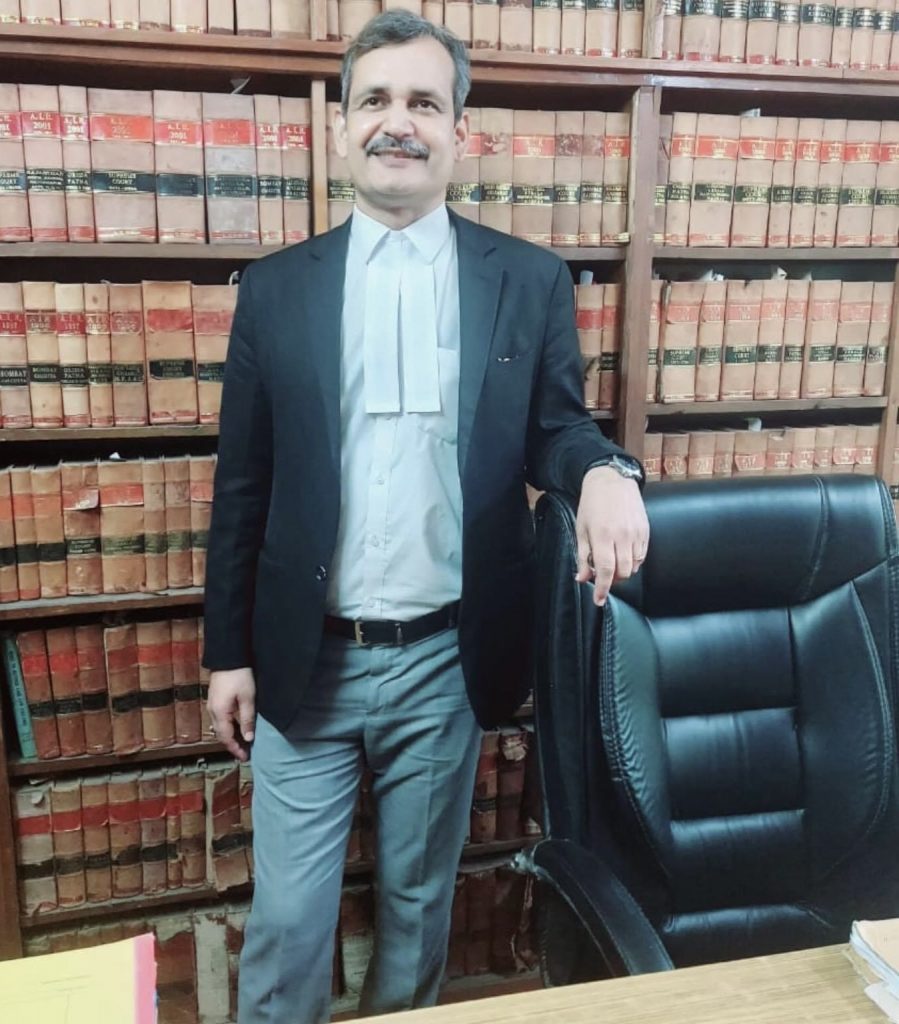This Interview has been published by Pragya Chandni and The SuperLawyer Team

Can you share with us your journey from studying mathematics to pursuing a career in law? What inspired this transition?
After studying mathematics, I developed a strong analytical mind-set and problem-solving skills. However, I realized my passion lies in using these skills to advocate for justice and navigate complex legal issues. Inspired by the intersection of logic and law, I pursued a career in law to apply my mathematical aptitude to legal challenges, ultimately seeking to make a meaningful impact in society through the legal profession.
As a criminal defense lawyer, you’ve handled a wide array of cases, including high-profile ones. What drew you specifically to criminal law, and how do you navigate the complexities of such cases?
From an early stage, I was drawn to criminal law due to its dynamic nature and the opportunity it presents to defend individual’s rights and ensure fair treatment within the legal system. In navigating complex cases, I rely on thorough research, strategic planning and a deep understanding of both the law and facts. Effective communication with clients and a commitment to upholding justice guide my approach to each case, regardless of its profile and complexity.
Founding “The Chambers of Amit Kumar” in 2007 marked a significant milestone in your career. What motivated you to establish your own legal practice, and what were some of the challenges you faced in the early stages?
Founding ‘The Chambers of Amit Kumar’ in the year 2007 was driven by my vision to provide personalized legal services tailored to clients’ needs. Motivated by a desire for autonomy and innovation, I sought to create a platform where I could pursue my passion for law while fostering a culture of excellence. In the early stages, challenges such as building a client base, managing finances, and establishing credibility were prevalent. However, through perseverance, strategic networking, and a commitment to delivering exceptional results, I overcame these obstacles and steadily grew our practice.
Could you walk us through how you approach each case uniquely, considering the legal complexities and ethical considerations involved?
I approach each case uniquely, recognizing that every situation has its own complexities and ethical considerations. Just as jewellery cannot be crafted with pure gold alone, cases often carry inherent impurities. I meticulously scrutinize these imperfections, strategically leveraging them to build a compelling defence. By identifying and addressing these nuances, I aim to achieve favourable outcomes for my clients while upholding ethical standards.
With extensive experience representing clients in various courts, including the Supreme Court and the Delhi High Court, how do you ensure effective representation while upholding the principles of justice and fairness?
In representing clients across different courts, my focus remains steadfast on effective advocacy while upholding the principles of justice and fairness. This involves thorough preparation, detailed discussions with clients, and adherence to ethical standards. I prioritize understanding the nuances of each case and presenting compelling arguments based on law and evidence. By maintaining integrity, respect for due process, and a commitment to equity, I strive to ensure effective representation that upholds the highest standards of justice.
Advocating for causes such as the petition relating to marital rape demonstrates your commitment to social justice issues. What role do you believe lawyers play in advocating for societal change, particularly in addressing sensitive issues like gender-based violence?
Lawyers play a crucial role in advocating for societal change, particularly in addressing sensitive issues like gender-based violence. Similar to doctors, lawyers are often at the forefront of observing societal trends and have the opportunity to raise awareness about important social issues through their daily practice. With this responsibility towards society, lawyers can leverage their expertise to challenge unjust systems, advocate for policy reforms, and provide support for victims of gender-based violence, ultimately contributing to a more just and equitable society.
Handling cases involving fraud and corruption, such as the JBT recruitment scam and housing society scam, requires a deep understanding of legal intricacies. How do you navigate through the legal complexities of such cases while ensuring transparency and accountability?
In navigating cases involving fraud and corruption, I prioritize a meticulous approach that combines through legal analysis with a commitment to transparency and accountability. This involves conducting extensive investigations, research work, collaborating with experts, and presenting compelling evidence in court. By upholding the principles of due process and ensuring transparency in all legal proceedings, I aim to pursue justice for my client.
As someone with a significant breadth of experience in the legal field, what advice would you offer to aspiring law graduates who are just starting their careers, especially those interested in criminal law and social justice advocacy?
My advice to aspiring law graduates interested in criminal law and social justice advocacy is to stay committed to continuous learning, develop strong analytical skills, and cultivate empathy for your clients and their communities. Seek out diverse experiences, such as internships, pro bono work, and mentorship opportunities, to gain practical insights and build a robust professional network. Never compromise with the ethical standards.
Get n touch with Amit Kumar-
























